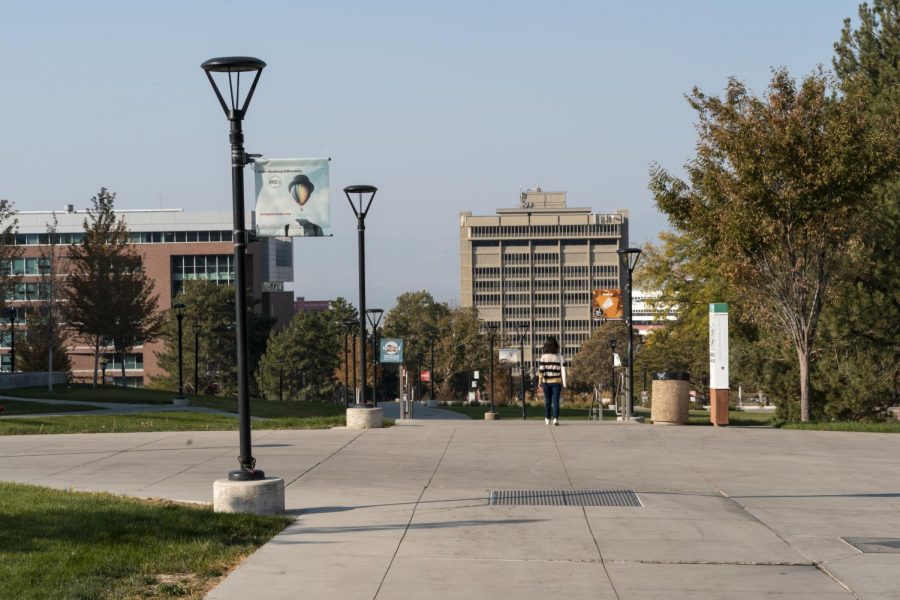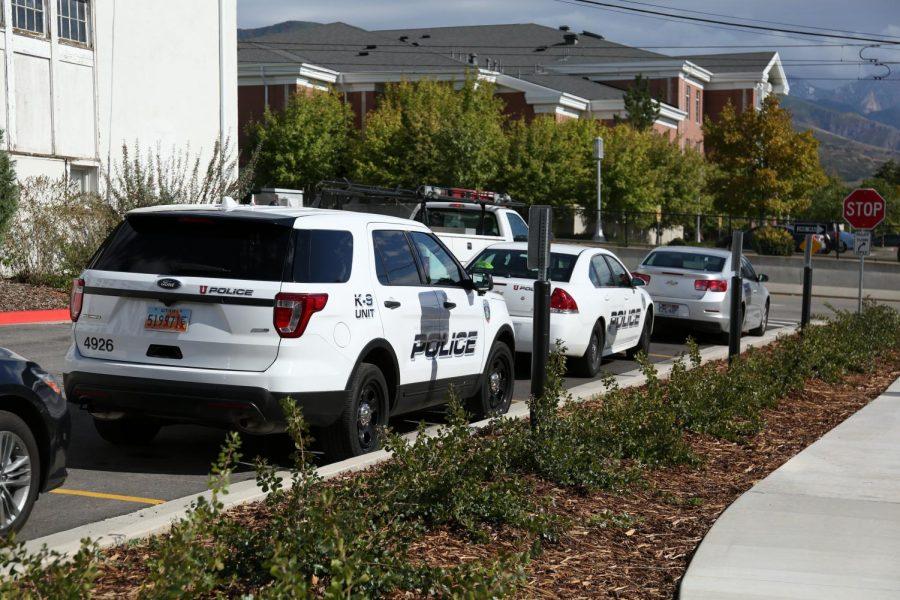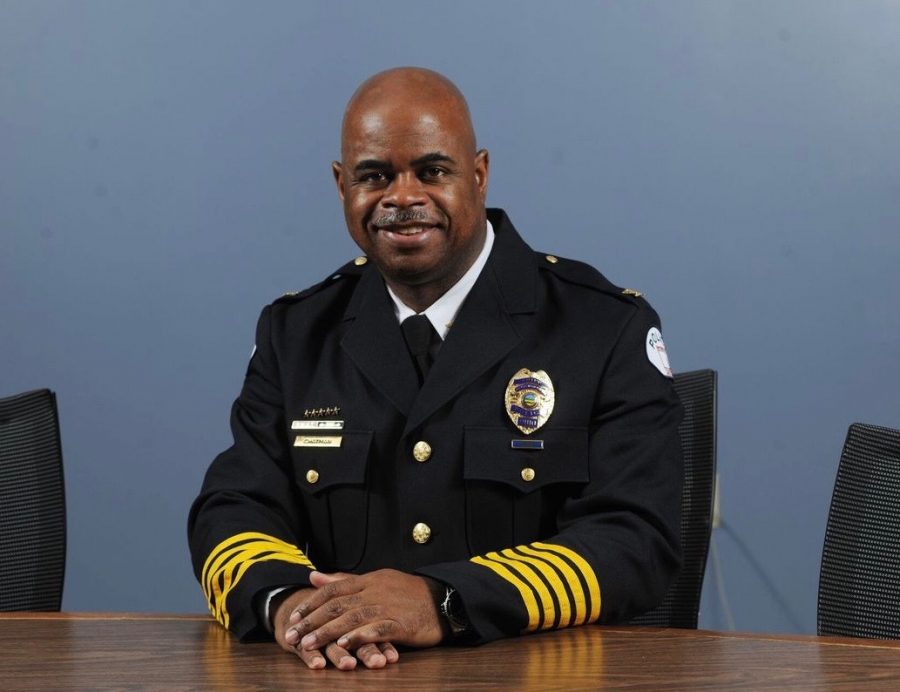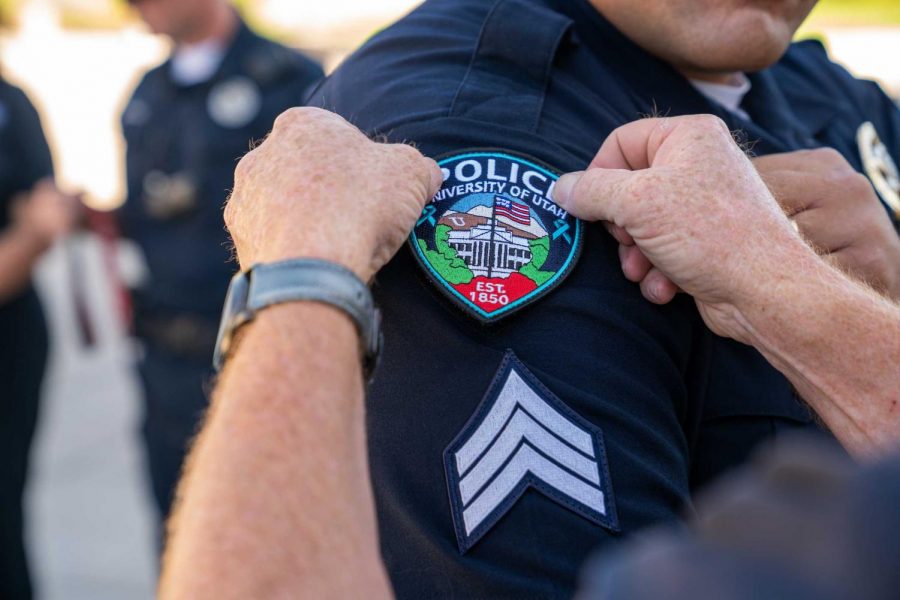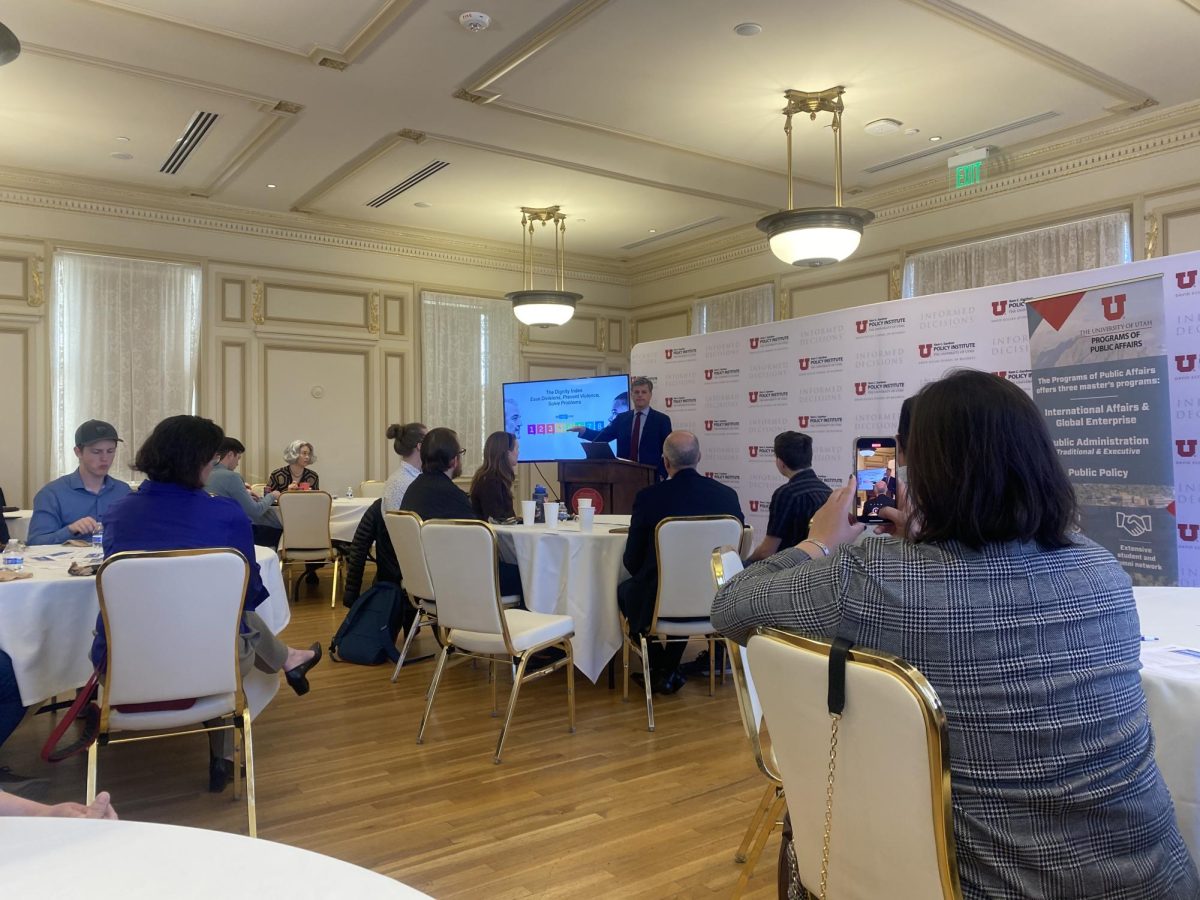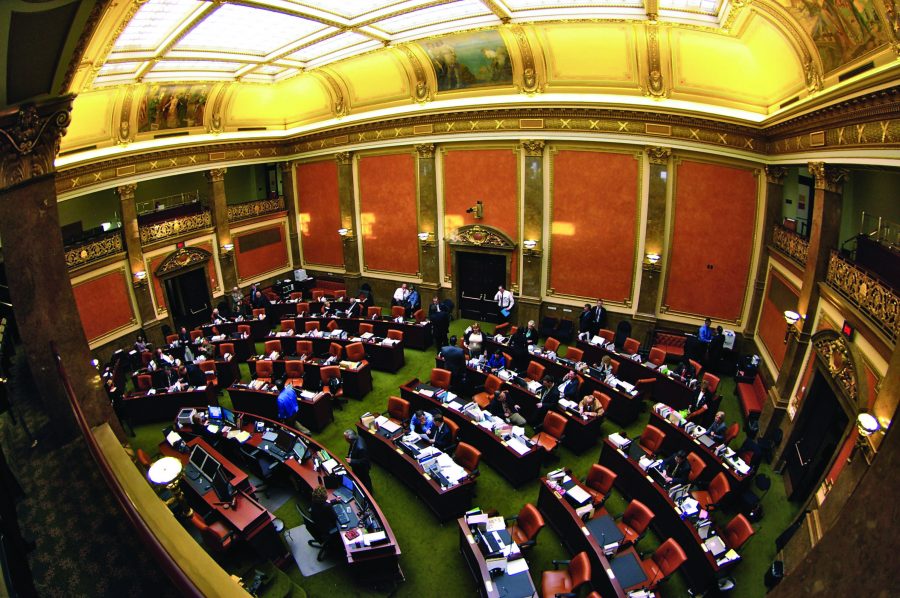On Nov. 22, 1988, Gordon Ray Church, a 28-year-old student at Southern Utah University was set to meet some friends for dinner before the students returned home for Thanksgiving but, as The Spectrum reported, the meeting never occurred. After Church stopped at a 7-Eleven to pick up cigarettes, he was abducted by two men who brutally sexually assaulted and murdered him in a deserted location in Millard county. Although there was evidence indicating the men had selected their victim based on prejudices toward Church’s sexual orientation, the case was four years too early to be seen as a hate crime in Utah. According to some, however, the hate crimes law passed in 1992 was never enforceable. No one has been convicted under it in the last 26 years.
“I think Utah doesn’t have a hate crimes law,” said University of Utah law professor Clifford Rosky. “We have a law that has hate crimes in the title, but it does not have any reference to hatred, violence or prejudice in the law itself.”
As an advocate for LGBTQ rights, Rosky helped author S.B. 196, S.B. 296 and R277-613— three pieces of Utah legislation aimed at protecting LGBTQ people from discrimination in the workplace, education and housing. Rosky was also responsible for drafting S.B. 107, the Hate Crimes Amendment, that was sponsored by Sen. Stephen Urquhart,R-St. George, in 2016 but failed to pass the Utah Senate by a margin of six votes.
A History of Hate-Crimes Laws in Utah
In 1990, former Utah congressional representative and former adjunct professor at the Hinckley Institute of Politics, Frank Pignanelli, listened to the story of one Utah woman who urged him to push for more hate crimes legislation in the state. The woman called the police after a group of skinheads— upon discovering she was Jewish— tagged her house with swastikas and the words “Die Jewish Slut” on it. Due to the lack of hate crimes legislation in the state, the police could only charge the men with vandalizing private property. A few weeks later, the woman was gang-raped by the same men after they broke into her home.
In response, Pignanelli introduced two pieces of legislation to address the need for increased penalties when dealing with hate crimes. The Hate Crimes Statistics Act was passed in 1992. It requires the Department of Public Safety to establish a crime reporting system that would include hate crimes statistics for the state of Utah. In the original version of the bill, reports would include “statistics concerning crimes that exhibit evidence of prejudice based on race, religion, ancestry, national origin, ethnicity or sexual orientation.” During a committee hearing, however, the bill was amended to replace the term “sexual orientation” with a more vague description— “any other categories that the division finds appropriate.”
A similar gutting of verbiage specific to the LGBTQ community also took place with Pignanelli’s Hate Crimes Penalties Act. The bill, when originally introduced, increased charges “for any person, maliciously and with specific intent to intimidate or harass another person because of that person’s race, religion, ancestry, national origin, ethnicity or sexual orientation” to a third-degree felony. The amended version replaced specifications of any protected groups to instead enhance penalties for persons committing a misdemeanor “with the intent to cause a person to fear to freely exercise or enjoy any right.”
Similar results came in 2006 when former Utah Rep. David Litvack, D-Salt Lake City, introduced Criminal Penalty Amendments that would require a sentencing judge to consider whether a defendant had selected a victim due to being “a member of a group … [had been] targeted by animus, discrimination, legal disabilities, or hate-based crimes.” The legislation was later amended to substitute for more vague verbiage that followed along the same lines of Pignatelli’s amended legislation. The gutted version required judges to consider if the offense “is likely to incite community unrest,” or to “to cause members of the community to reasonably fear for their physical safety or to freely exercise or enjoy any right.”
A Hopelessly Vague Law
Rosky believes that, as it stands, Utah’s hate crimes laws are “hopelessly vague.” He said that even the Utah Appellate Court ascertained the ineffective nature of Utah’s current hate crimes legislation. Rosky was referring to a case brought before the Utah Court of Appeals in 2001. On trial were the rights of a white male juvenile who had been convicted of a third-degree felony after hate crime enhancements.
The juvenile had— along with two other white male teenagers — attacked a black girl outside of the school they attended. While yelling racial slurs, the group threw snowballs at the girl before shoving her onto the road. While the appellate court recognized that racial bias had been present during the criminal act, they ended up overturning the crime’s enhancement due to the vague nature of Utah’s laws that do not provide specifications for bias based on race, religion or sexual orientation.
A more recent case that made national headlines put Utah’s ineffective hate crimes laws on display. A Latino father and son, Jose and Luis Lopez, were attacked and beaten with a metal bar at their family’s tire shop by a man who they said screamed that he wanted to “kill a Mexican.” Salt Lake County District Attorney Sim Gill told The Salt Lake Tribune that he was unable to seek hate crime enhancements for the alleged assault due to the vague nature of Utah’s hate crimes laws.
The Church of Jesus Christ of Latter-day Saints and LGBTQ Rights
“It is not a mystery why Utah doesn’t have a hate crimes law,” Rosky said. “It’s because of the reluctance to add LGBT people.”
Sen. Steve Urquhart, R-St. George, has expressed similar views on the matter. In an interview about S.B. 107’s failure to pass the Utah Senate, Urquhart told KUER’s RadioWest host Doug Fabrizio that the bill had had a good chance of passing before the Church of Jesus Christ of Latter-day Saints took a position against it.
In the past, the LDS Church has said that it would not support the bill because they saw it as a disruption of the balance between LGBTQ and religious rights that they claimed had already been achieved through the 2015 passage of the Antidiscrimination and Religious Freedom Amendments — a bill the faith backed. The legislation was viewed as a compromise between the interests of the state’s religious population and LGBTQ community. It came at a time when the LDS Church had come under fire due to its views on same-sex relationships.
“I am very proud of the Mormon church,” Urquhart said during the interview with Fabrizio. “I think that it is a great and important part of the fabric of our state, and typically it handles itself professionally and it is respectful of the democratic process. But here, it just wasn’t.”
This year, however, the LDS Church is taking a different position on hate crimes legislation. Marty Stephens, the faith’s lobbyist, told the Associated Press the LDS Church would not oppose a hate crimes law that includes protections for LGBTQ individuals.
“The LDS church has been a victim of hate crimes over the years and we understand the importance of this,” Stephens said. “All men and women are God’s sons and daughters and we think they should be treated with civility and respect, and that no group should be targeted for crime based on membership in that group.”
A Growing Need
Erika George is a law professor at the U whose research focuses on human rights. She believes the current hate crimes legislation in Utah is not efficient because it lacks a “clear directive that [hate] crimes will be prosecuted.”
In citing the current law’s lack of specificity toward the groups it aims to protect, George said “it is symptomatic of a move to be blind to differences that make a difference.” She continued, stating the way in which the law “created and carved out exceptions to exclude has left it a weaker device for preventing crime.”
George feels that lack of enforceable legislation and commitment to prosecution has contributed to an increase in hate crimes. She said that passing and enforcing legislation against hate crimes is “imperative” because “if we fail to do this, our failure speaks to condoning the kind of conduct that has been rising.”
Sen. Daniel Thatcher, R-West Valley City, recently announced his intention to propose a bill aimed at amending the current hate crimes laws. This would be the third executive legislative session in which the senator has attempted to pass similar bills. However, the recent attack on the Lopez family has placed Utah’s laws under national scrutiny and could influence views on the need for this legislation. Sen. Todd Weiler, R-Woods Cross, recently told The Salt Lake Tribune that he would be willing to support this year’s hate crimes legislation despite his failure to do so in the past.
When asked about whether he feels that hate crimes bills will have a better chance at passing during this legislative session, Rosky said he certainly hopes so.
“When people are running around saying ‘I’m here to kill a Mexican,’ it’s time to do something,” Rosky said.







